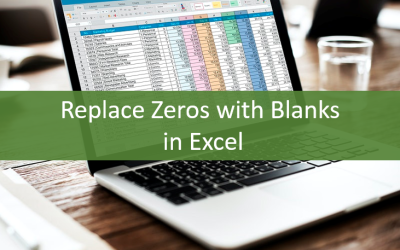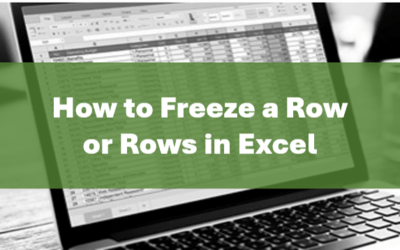Microsoft Excel: Visual Basic for Applications
(VBA) Macros | Intermediate
Microsoft Excel Training Series | Level 4
Course Details
Duration: 2 days
Microsoft® Excel® Versions: 2007 | 2010 | 2013 | 2016 | 365
Delivery Methods: Instructor-led classroom (ILC) | Virtual classroom (VC) on request
Course Dates: TBA | View schedule ![]()
Course Fee: $595 CDN per person + HST or BYOD (bring your own device): $545 CDN person + HST*
Note: Public scheduled dates for this course are delivered as live instructor-led classroom training.
Course Overview
This intermediate course is designed for the user who wants to move beyond the basics of Visual Basic for Applications (VBA) to automate Microsoft Excel. Students will continue to use modules, procedures, variables and constants to create VBA macros. Nested If statements, select case, error handling and classes will be demonstrated using various examples. Students will run macros using different types of events including worksheet and workbook events. User forms will be created as well as user defined functions.
Prerequisite: Microsoft Excel: Visual Basic for Applications (VBA) Macros | Introduction or equivalent knowledge and skills.
Custom training: This course may be delivered at your site or ours as an instructor-led or virtual classroom solution. Contact us at info@avantixlearning.ca for more information including savings for custom group training.
Related training: View all Microsoft Excel courses
INCLUDED IN THIS COURSE
- Comprehensive course manual or published book
- Keyboard shortcuts quick reference
- Sample and exercise files
- Refreshments (for classes conducted in Avantix Learning classrooms)
- Certificate of completion
- Follow-up email support
Course Topics
Working with Variables and Ranges
- Private vs public declarations
- Setting defaults
- Determining types of ranges
- Working with variable-sized ranges
- Declaring range variables
- Moving and copying fixed or variable ranges
If Statements
- Syntax of If statements
- Nesting If statements
Using Select Case
- Comparing SelectCase to If
- Nesting case statements
Working with Loops
- For loops
- For each loops
- Do While loops
- Do Until loops
Using Excel Events to Trigger Macros
- Using workbook events such as Open, Close, BeforeSave, and BeforePrint
- Using worksheet events such as SelectionChange, Change, and BeforeRightClick
- Running macros using non-object events such as OnTime and OnKey
- Monitoring the sequence of events
Creating Custom Functions
- Determining the number of arguments reqired
- Creating functions with no arguments
- Using custom functions in other procedures
- Using CurrentRegion and UsedRange
- Deleting empty rows or columns for an entire sheet or selected range
- Deleting rows or columns based on cell content
- Using an input box to select a range
Creating and Working with User Forms
- Creating a user form
- Overview of user form controls
- Using text boxes and labels
- Inserting combo boxes and list boxes
- Using frames, option buttons and check boxes
- Inserting command buttons, spin buttons and scroll bars
- Adding images
- Formatting user forms and controls
- Using user form events
- Designing Splash Screens
- Using form templates
- Creating multi-page forms
Error Handling
- Dealing with errors
- Using On Error Go To
- Resuming a macro
- Working with the Immediate window
Application Level Methods
- Performing application level methods
- Interacting with other applications such as Outlook and Microsoft Word
Working with Classes
- Overview of classes
- Creating a class
- Setting properties for a class
- VBA class instantiation
- Accessing VBA class properties
- Using VBA class methods
Register Now for a public course at our downtown Toronto location at 1 Yonge Street, Suite 1801 (Toronto Star Building), Toronto, Ontario, Canada.
Do you need more information? Contact us!
To request this page in an alternate format, contact our staff.
*Prices subject to change.
Copyright 2024 Avantix® Learning

Custom training
Register now for a public scheduled course or contact us to discuss custom on-site or off-site training options.
Related courses
Microsoft Excel: Intermediate / Advanced
Microsoft Excel: Data Analysis with Functions, Dashboards and What-If Analysis Tools
Microsoft Excel: Visual Basic for Applications (VBA) | Introduction
Microsoft Excel: Introduction to PowerPivot and PowerQuery Business Intelligence Tools
Microsoft Project: Visual Basic for Applications (VBA) Macros | Introduction
You may like
How to Replace Zeros (0) with Blanks in Excel
There are several strategies to replace zero values (0) with blanks in Excel. If you want to replace zero values in cells with blanks, you can use the Replace command or write a formula to return blanks. However, if you simply want to display blanks instead of zeros, you have two formatting options – create a custom number format or a conditional format.
What is Power Query in Excel?
Power Query in Excel is a powerful data transformation tool that allows you to import data from many different sources and then extract, clean, and transform the data. You will then be able to load the data into Excel or Power BI and perform further data analysis. With Power Query (also known as Get & Transform), you can set up a query once and then refresh it when new data is added. Power Query can import and clean millions of rows of data.
How to Freeze Rows in Excel (One or Multiple Rows)
You can freeze one or more rows in an Excel worksheet using the Freeze Panes command. If you freeze rows containing headings, the headings will appear when you scroll down. You can freeze columns as well so when you scroll to the right columns will be frozen.
How to Show or Hide Gridlines in Excel
You can remove or hide gridlines in Excel worksheets to simplify worksheet design. By default, gridlines are displayed but do not print. Gridlines are applied to entire worksheets or workbooks, not to specific cells. If you hide gridlines on one worksheet, it doesn't affect other sheets in the same workbook.
You may also like
How to Insert or Type I with an Accent Mark in Word (Í, í, Ì, ì, Î, î, Ï, or ï)
You can insert or type i with an accent mark in Word using built-in tools or keyboard shortcuts (including Alt code shortcuts). The letter i can be inserted with an accent in both upper or lower case. The following are common accented characters that you can insert or type in Word in upper or lower case: grave (Ì or ì), acute (Í or í), circumflex (Î or î) and umlaut (Ï or ï).
How to Insert or Type A with an Accent Mark in Word (À, Á, Â, Ä, à, á, â, or ä)
You can insert or type a with an accent mark in Word using built-in tools or keyboard shortcuts (including Alt code shortcuts). The letter a can be inserted with an accent in both upper or lower case. The following are common accented characters that you can insert or type in Word in upper or lower case: grave (À or à), acute (Á or á), circumflex (Â or â) and umlaut (Ä or ä).
10 Word Shortcuts to Select Text Using a Keyboard
You can use several shortcuts in Word to select text in your documents using only your keyboard. When you select text, it will typically be highlighted in grey. After you select text, you can cut, copy, or delete the selected text or apply character or paragraph formatting.
Microsoft, the Microsoft logo, Microsoft Office and related Microsoft applications and logos are registered trademarks of Microsoft Corporation in Canada, US and other countries. All other trademarks are the property of the registered owners.
Avantix Learning | 1 Yonge Street, Suite 1801 (Toronto Star Building), Toronto, Ontario, Canada M5E 1W7 | info@avantixlearning.ca







